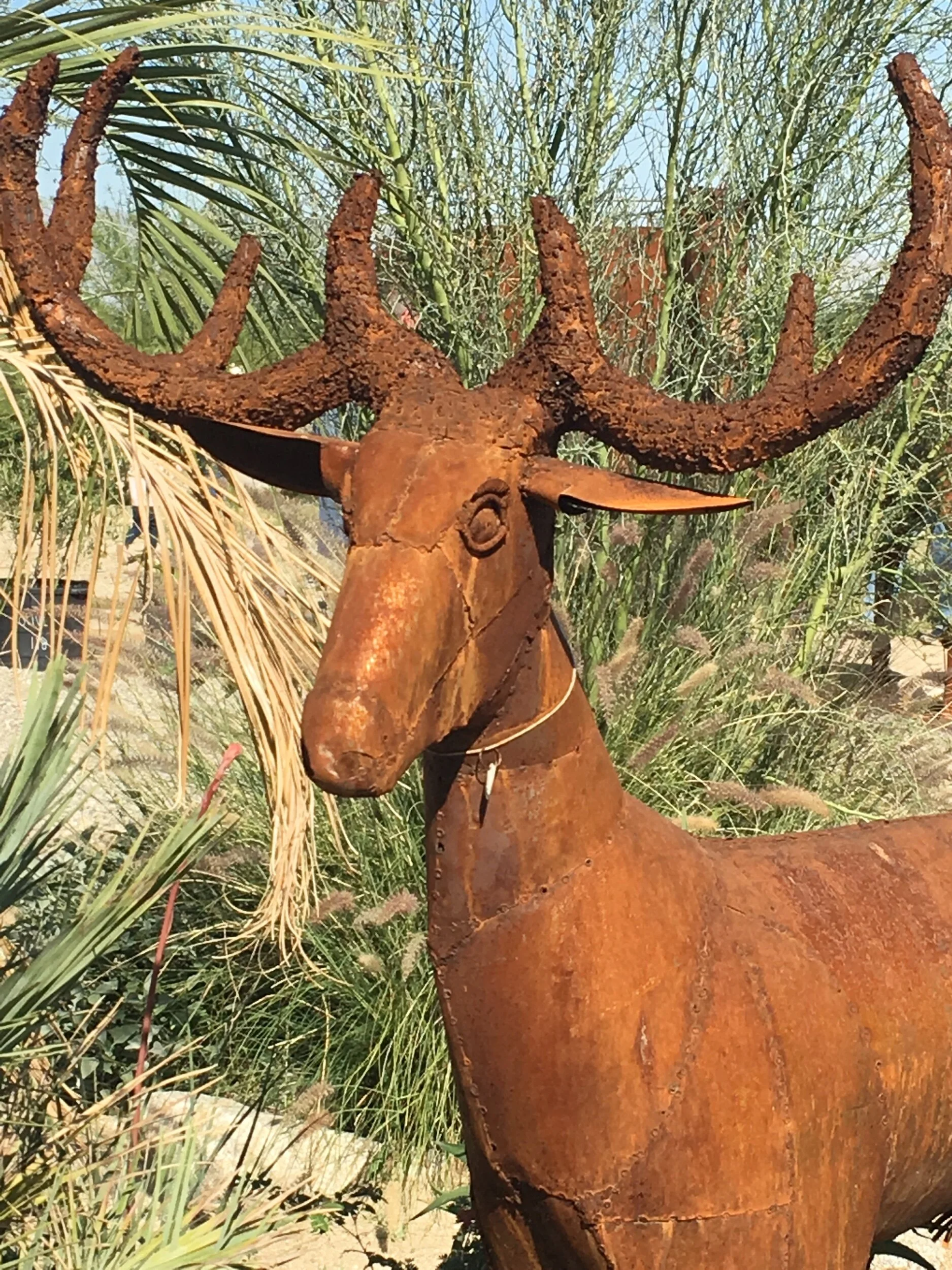We all do it: use our own or another’s pain and mortality as subjects, smearing our interpretations across the canvas of history and current events. For this prompt, let’s acknowledge our hapless muses. Especially those leggy herbivores who seem so graceful in the leap and bound yet so sorrowful in the bloodied tangle alongside road and woods. Read Noah Stetzer’s poem below and check out the entire sixth finch issue.
For the first prompt, use the poem’s ending: “as if it waited / there to mean something” as a ghostline (the first line of your own poem as a jumping off point). Remember to delete Stetzer’s line but still acknowledge the poet for the inspiration.
I particularly love the reference to the deer in Stafford’s poem “Traveling Through the Dark” as if the deer in his poem stares at Stafford’s deer and another and another in parallel mirrors. Notice how the repetition of “straight“ and “twist” also echo Stafford’s “swerving” in his poem. What image/object/person is reflected repeatedly in your own work? For the next prompt, address your muse directly. Apologize if need be, or offer thanks. Use an ode if possible.
For a third prompt, write a poem using the following words from “For All The Deer”: “found,” “straight,” “knot,” “foregone,” struck,” “force,” “twist,” and “waited” but do not use any references to the act of writing. Instead use these strong verbs to an entirely different action or process.
Btw, I read this poem several times and each time found some new detail to enjoy. Notice the wordplay here: the combining of writing metaphors with those of life/death/path/highway, the juxtaposition of “twisted” and “straight” (and repetition of both), the deliberate use of “musing” here. Even the use of “found” seems to refer to a found poem.



